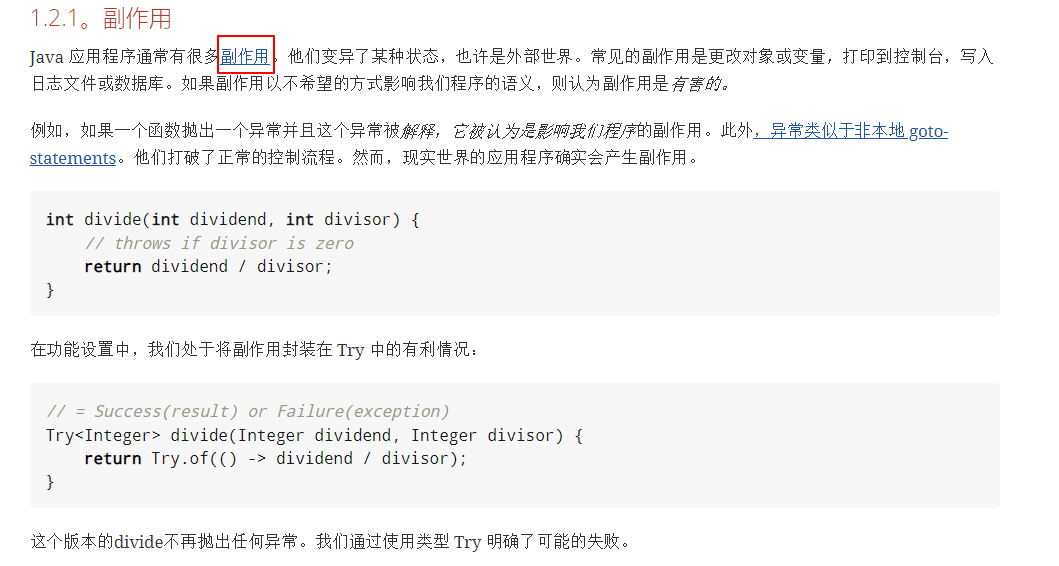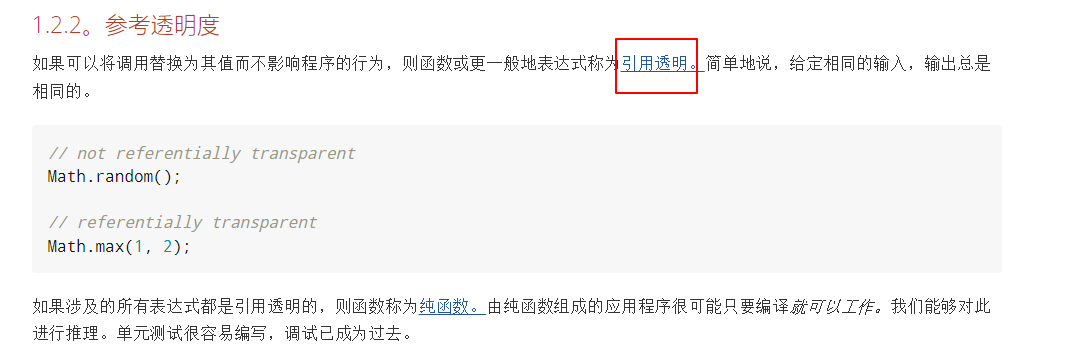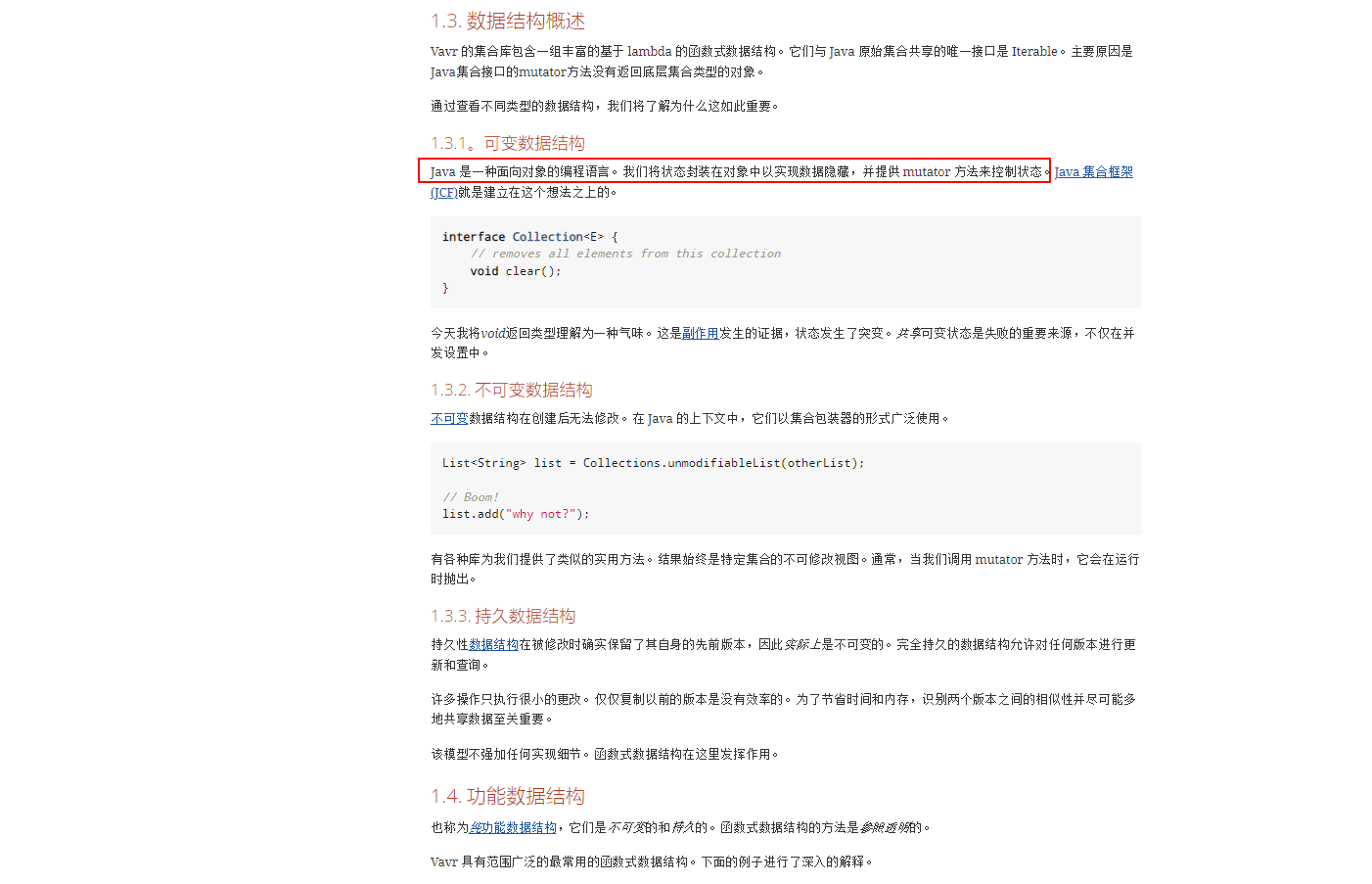1.2.1 副作用

关于副作用的进一步解释:
1 | Side effect就是“副作用”(侧面影响),通常是对于一个函数而言的,说一个函数“有副作用”或者“没有副作用”。 |
1.2.2 引用透明

1.2.3 价值观思考

1.3 数据结构概述

3.3 价值观
高效写
代码测试
1 | package com.taopanfeng.junit.vavr; |

关于副作用的进一步解释:
1 | Side effect就是“副作用”(侧面影响),通常是对于一个函数而言的,说一个函数“有副作用”或者“没有副作用”。 |



高效写
1 | package com.taopanfeng.junit.vavr; |